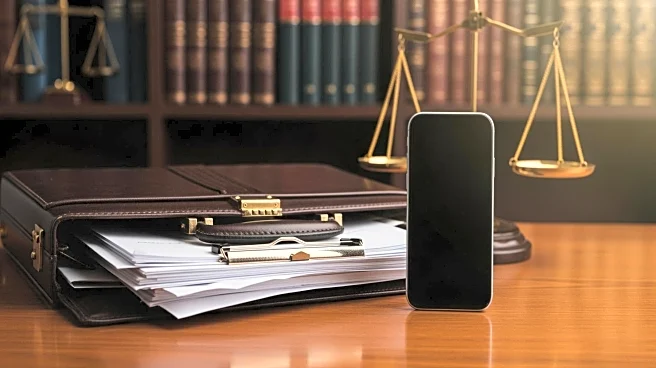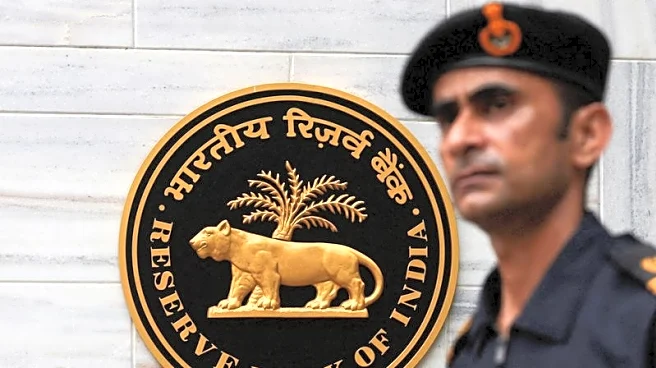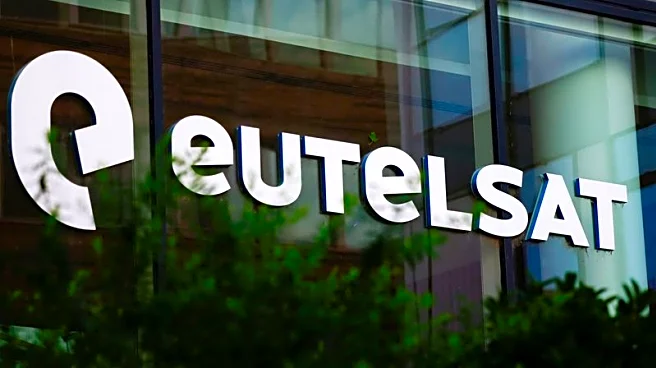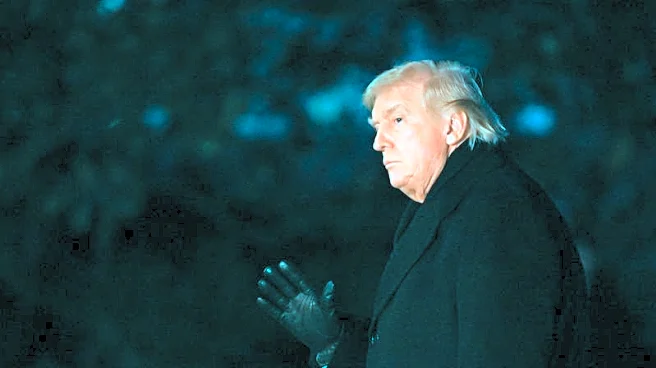What's Happening?
Attorney Andrew Lattarulo, an immigration lawyer, has filed a motion in a civil lawsuit claiming that the government unlawfully seized his phone at Boston Logan International Airport. Lattarulo argues
that he is being targeted due to his public criticism of the Trump administration's immigration policies. The seizure occurred on September 28, shortly after his firm was audited for allegedly hiring workers not legally authorized to work in the U.S. Lattarulo's lawyers contend that the government has failed to secure a search warrant for the phone and that the seizure is inconsistent with constitutional protections. The Department of Homeland Security maintains that inspections of electronic devices at the border are essential for national security.
Why It's Important?
This case highlights ongoing tensions between immigration lawyers and federal authorities, particularly under the Trump administration. The outcome of Lattarulo's lawsuit could set a precedent for how electronic devices are handled at U.S. borders, impacting privacy rights and government surveillance practices. If Lattarulo's claims are upheld, it may encourage other legal professionals to challenge similar government actions, potentially affecting how immigration policies are enforced and criticized. The case also underscores the broader debate over civil liberties in the context of national security.
What's Next?
A hearing is scheduled for Monday, where Judge Allison D. Burroughs will decide whether to destroy the data collected from Lattarulo's phone. The decision could influence future legal actions regarding government searches and seizures of electronic devices. Stakeholders, including civil rights groups and immigration advocates, are likely to monitor the case closely, as it may impact their strategies in defending against government overreach. The Department of Homeland Security's response and any subsequent legal challenges could further shape the discourse on privacy and security at U.S. borders.
Beyond the Headlines
The case raises ethical questions about the balance between national security and individual privacy rights. It also highlights the potential for government actions to be perceived as retaliatory against critics of administration policies. Long-term implications may include increased scrutiny of government practices and potential reforms in how electronic devices are inspected at borders. The cultural dimension involves the role of social media in amplifying voices critical of government policies, as seen with Lattarulo's significant online following.










